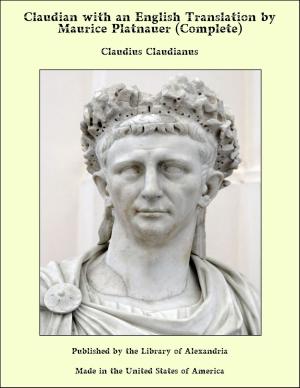Adventures of an Aide-de-Camp: A Campaign in Calabria (Complete)
Nonfiction, Religion & Spirituality, New Age, History, Fiction & Literature| Author: | Archaeologist James Grant | ISBN: | 9781465615237 |
| Publisher: | Library of Alexandria | Publication: | March 8, 2015 |
| Imprint: | Language: | English |
| Author: | Archaeologist James Grant |
| ISBN: | 9781465615237 |
| Publisher: | Library of Alexandria |
| Publication: | March 8, 2015 |
| Imprint: | |
| Language: | English |
On the evening of the last day of June 1806, the transports which had brought our troops from Sicily anchored off the Italian coast, in the Bay of St. Eufemio, a little to the southward of a town of that name. The British forces consisted of H. M. 27th, 58th, 78th, and 81st Regiments of the Line, the Provisional Light Infantry and Grenadier Battalions, the Corsican Rangers, Royal Sicilian Volunteers, and the Regiment of Sir Louis de Watteville, &c., the whole being commanded by Major-General Sir John Stuart, to whose personal staff I had the honour to be attached. This small body of troops, which mustered in all only 4,795 rank and file, was destined by our ministry to support the Neapolitans, who in many places had taken up arms against the usurper, Joseph Buonaparte, and to assist in expelling from Italy the soldiers of his brother. Ferdinand, King of Naples, after being an abject vassal of Napoleon, had allowed a body of British and Russian soldiers to land on his territories without resistance. This expedition failed; he was deserted by the celebrated Cardinal Ruffo, who became a Buonapartist; and as the French emperor wanted a crown for his brother Joseph, he proclaimed that "the Neapolitan dynasty had ceased to reign"—that the race of Parma were no longer kings in Lower Italy—and in January 1806 his legions crossed the frontiers. The "lazzaroni king" fled instantly to Palermo; his spirited queen, Carolina (sister of the unfortunate Marie Antoinette), soon followed him; and the usurper, Joseph, after meeting with little or no resistance, was, in February, crowned king of Naples and Sicily, in the church of Sancto Januario, where Cardinal Ruffo of Scylla, performed solemn mass on the occasion. All Naples and its territories submitted to him, save the brave mountaineers of the Calabrias, who remained continually in arms, and with whom we were destined to co-operate. When our anchors plunged into the shining sea, it was about the close of a beautiful evening—the hour of Ave Maria—and the lingering light of the Ausonian sun, setting in all his cloudless splendour, shed a crimson glow over the long line of rocky coast, burnishing the bright waves rolling on the sandy beach, and the wooded mountains of Calabria, the abode of the fiercest banditti in the world.
On the evening of the last day of June 1806, the transports which had brought our troops from Sicily anchored off the Italian coast, in the Bay of St. Eufemio, a little to the southward of a town of that name. The British forces consisted of H. M. 27th, 58th, 78th, and 81st Regiments of the Line, the Provisional Light Infantry and Grenadier Battalions, the Corsican Rangers, Royal Sicilian Volunteers, and the Regiment of Sir Louis de Watteville, &c., the whole being commanded by Major-General Sir John Stuart, to whose personal staff I had the honour to be attached. This small body of troops, which mustered in all only 4,795 rank and file, was destined by our ministry to support the Neapolitans, who in many places had taken up arms against the usurper, Joseph Buonaparte, and to assist in expelling from Italy the soldiers of his brother. Ferdinand, King of Naples, after being an abject vassal of Napoleon, had allowed a body of British and Russian soldiers to land on his territories without resistance. This expedition failed; he was deserted by the celebrated Cardinal Ruffo, who became a Buonapartist; and as the French emperor wanted a crown for his brother Joseph, he proclaimed that "the Neapolitan dynasty had ceased to reign"—that the race of Parma were no longer kings in Lower Italy—and in January 1806 his legions crossed the frontiers. The "lazzaroni king" fled instantly to Palermo; his spirited queen, Carolina (sister of the unfortunate Marie Antoinette), soon followed him; and the usurper, Joseph, after meeting with little or no resistance, was, in February, crowned king of Naples and Sicily, in the church of Sancto Januario, where Cardinal Ruffo of Scylla, performed solemn mass on the occasion. All Naples and its territories submitted to him, save the brave mountaineers of the Calabrias, who remained continually in arms, and with whom we were destined to co-operate. When our anchors plunged into the shining sea, it was about the close of a beautiful evening—the hour of Ave Maria—and the lingering light of the Ausonian sun, setting in all his cloudless splendour, shed a crimson glow over the long line of rocky coast, burnishing the bright waves rolling on the sandy beach, and the wooded mountains of Calabria, the abode of the fiercest banditti in the world.















